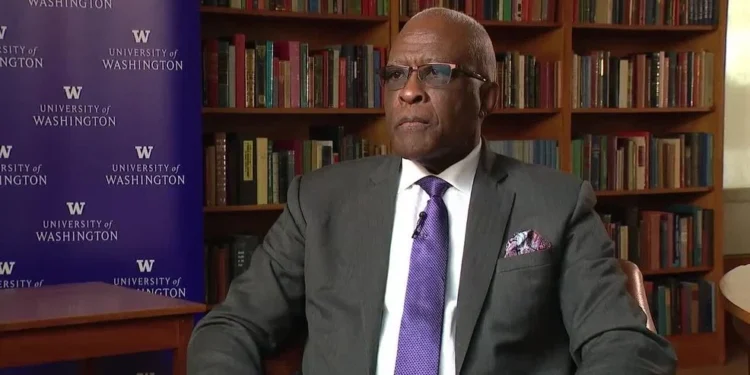Robert Jones, the new president of the University of Washington, has stepped into leadership at Seattle’s largest employer during a period marked by years of budget strain, campus protests, and the lingering effects of a pandemic.
Taking over at the beginning of the month, Jones inherits many of the challenges left from former president Ana Mari Cauce’s decade-long tenure. These include shifting enrollment patterns, tight finances, and concerns over student and staff well-being. But he also faces new pressures, including federal policies under the Trump administration that have created fresh uncertainty for higher education.
UW global health professor Abraham Flaxman noted that Jones is essentially stepping into the same storm Cauce navigated over the past year, saying she held the line through turbulent times, but now the decisions will be his.
International policy changes have deepened existing problems like funding shortages while also sparking new concerns, particularly for the university’s sizable international student population. Student government leader Nandana Jaideep described the current mood on campus as a mix of “uncertainty and resilience,” pointing to anxiety about federal education policy and funding shifts, but also a willingness among students and administrators to work together on solutions.
Here are three pressing issues that UW leaders say Jones must tackle:
Protests, antisemitism, and Islamophobia
Since the October 7, 2023, Hamas attack on Israel and the subsequent war in Gaza, UW has seen a series of protests and counterprotests. In May, demonstrators set up a nearly three-week tent encampment on the Quad, which ended with an agreement that included scholarship funding for Palestinian students displaced from Gaza.
Earlier in the year, a federal review concluded UW often failed to take adequate action on discrimination complaints. While the university signed an agreement with the Department of Education in January to address the issue, it maintained that the settlement did not admit liability or wrongdoing.
Tensions escalated again in May when protesters occupied and allegedly damaged equipment inside the university’s new engineering building, prompting 31 arrests. Protesters demanded UW cut ties with Boeing over its role as a supplier to the Israel Defense Forces. Twenty-one students were suspended, and UW police are still investigating.
Following these events, the Trump administration launched a federal review into alleged antisemitic activity at UW — an investigation that remains open.
International student uncertainty
Roughly 14% of UW’s Seattle campus population consists of international students, with about 8% from China. Visa policy shifts under the Trump administration, including a short-lived mass revocation this spring, have left many unsure about their ability to continue studying or travel home.
Flaxman said students worry about whether their visas will remain valid, whether they can visit family abroad, or whether speaking out on political issues could jeopardize their status.
Graduate student leader Ryan Wicklund described a climate of volatility, saying some students chose not to leave the U.S. over summer break for fear of being barred from returning. Others have faced disruptions to their research grants without clear answers.
Budget cuts and funding uncertainty
UW’s financial troubles are intensifying, with state and federal cuts forcing layoffs, furloughs, and reductions in staff hours. The university expects a 6.5% drop in state funding, partly due to decreased state contributions toward staff salaries.
Cauce warned earlier this year that the cuts could lead to larger class sizes, fewer advising resources, and more unfilled positions. Federal research funding is also at risk, with some grants suspended without explanation before being abruptly reinstated.
Geneticist Mary-Claire King recounted how her lab waited seven months for $1.8 million in National Institutes of Health funding that had already been approved, only to see it suddenly appear without any official notice.
Flaxman, whose research with the U.S. Census Bureau ended early due to federal cuts, said faculty and students alike are scrambling to keep projects alive amid constant funding uncertainty.
On top of these challenges, Jones will need to navigate relationships with more than a dozen campus unions, some of which have had tense negotiations with the administration in recent years. Tricia Schroeder, who heads SEIU 925, UW’s largest union, said she hopes Jones will treat university employees as essential partners rather than obstacles to manage.







